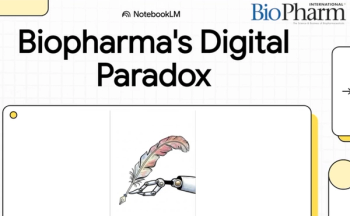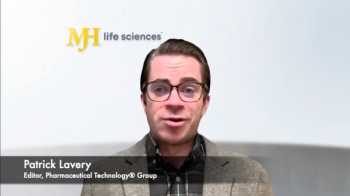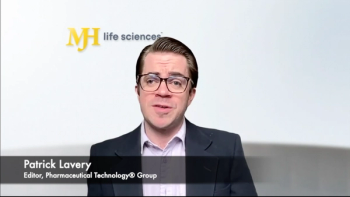
This quiz measures your comprehension of one of our recent feature articles.

This quiz measures your comprehension of one of our recent feature articles.

The BioPharm International biopharma industry report on digital transformation uncovers an adoption paradox. This video summarizes our findings.

This week’s news highlights biopharma R&D’s focus on new biologics and CGT innovation, with growth fueled by AI adoption and significant investments into market expansion.

ARM board member Miguel Forte highlights education programs, innovation hubs, and hands-on training to foster workforce expertise in the biopharma industry.

Driven by R&D investment and personalized medicine, advanced biotech equipment is essential for scalable drug production and development into the next decade, according to a BCC Research report.

Maximizing value in advanced therapies requires the use of proven approaches, expert logistics, and tailored distribution, says Miguel Forte, board member of ARM.

Groundbreaking gene delivery, scalable IPSC approaches, and advanced production solutions will impact future CGT development, according to ARM board member, Miguel Forte.

Biopharma Q3 2025 data show M&A strength, selective venture capital favoring Phase II, record obesity deals, and significant upfronts flowing toward innovation in China.

As cell and gene therapy is poised to play a major role in the future of medicine, it’s important to know the basics.

ARM Board Member Miguel Forte highlights CGT investment shifts, sector resilience, and alternative funding strategies during Meeting on the Mesa.

Boosting AI spending, focusing on workforce upskilling, and tackling ethical challenges to drive innovation and product development are top of mind for life science CEOs.

Cellevate’s nanofiber technology enables higher viral vaccine titers in adherent cell cultures, advancing efficiency in large-scale biomanufacturing.

A buffer media station that is currently under construction at Rentschler Biopharma headquarters is expected to contribute to the competitive biotechnology field across Germany and the rest of Europe.

Each step of development and manufacturing is becoming more interconnected, and BioPharm's September/October issue highlights the strategies, tools, and innovations shaping the future of the field.

US President Donald Trump confirmed AstraZeneca as the second of 17 major pharmaceutical companies, after Pfizer, to agree to most-favored-nation pricing protocols.

This second part of a two-part article provides a clear understanding of microbiological load reduction during cleaning processes in the non-sterile pharmaceutical manufacturing.

Scaling biopharma innovation demands advanced manufacturing, global market expansion, and solving patient access barriers.

Industry leaders at Meeting on the Mesa discussed big biopharma’s role in next-step CGT scale, focusing on manufacturing quality and patient access.

Jon Ellis, CEO, shares his thoughts on Trenchant BioSystems’ new technology, its reception within the cell and gene therapy sector, and the future nature of industry partnerships.

Comparing our survey results with recent headlines uncovered biopharma’s digital transformation paradox: high potential vs. low adoption.

To increase CAR-T patient access, healthcare professionals must standardize high-quality delivery, shift to outpatient settings, and overcome current logistical barriers, industry leaders said at a session during the Cell and Gene Meeting on the Mesa.

In a session at the Cell and Gene Meeting on the Mesa, Prime Medicine CEO Allan Reine discussed how prime editing offers versatile, safe gene correction, but that delivery to target cells remains a major hurdle.

A growing demand for liquid medicines is driven by patient groups' unique needs, improving compliance through flexible and palatable dosing options.

The company is expanding its footprint in Japan and South Korea, deepening regional partnerships and aligning focus on biologics manufacturing.

A panel at the Cell and Gene Meeting on the Mesa discussed how advanced therapy production demands modular platforms, automation, and data governance to drastically improve patient access and affordability.

By licensing Talicia to priority markets, RedHill targets growing antibiotic resistance to the cancer-associated H. pylori bacteria with an FDA-approved, fixed-dose therapy

In this week’s news, industry shifts are marked by new FDA draft guidances, Pfizer’s agreement to MFN pricing, Novartis’ launch of DTP distribution, and AI-driven protein design.

Naobios and Olon France create custom HCP ELISA to advance vaccine trials and strengthen global biopharmaceutical manufacturing capacity.

The regulatory progress for AAVantgarde’s AAVB-039 underscores advances in dual-vector gene therapy, as well as scalable manufacturing and efficient rare-disease clinical development.